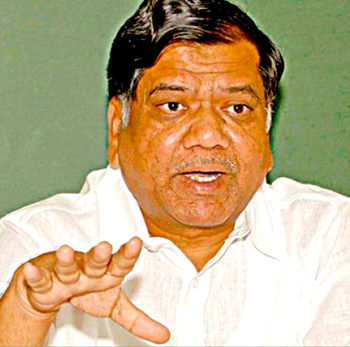Bengaluru, Jul 29: The state BJP?on Thursday said that Prime Minister cannot intervene in an inter-state water dispute unless the riparian states come to a consensus and agree to sit across the table to resolve the dispute.

Leader of the Opposition in the Legislative Assembly Jagadish?Shettar said the state government should focus on fighting the legal battle on the Mahadayi dispute rather then seeking Prime Minister's intervention.
“The government is trying to give the entire issue a political angle by putting the blame on the Prime Minister. The government wanted the Prime Minister?to intervene even when the Tribunal proceedings were on. The government failed to make proper submission before the Tribunal resulting in a setback to the state,” the BJP?leader said.
The Mahadayi Water Disputes Tribunal on Wednesday rejected the state's plea seeking permission to utilise 7 tmcft from the Mahadayi river.
BJP?legislator and former Water Resources Minister Basavaraj Bommai said the Tribunal order is full of flaws. The government should file a Special Leave Petition in the Supreme Court to challenge the order. The Tribunal has erred as it had not considered the assessment done by the Central?Water Commission on water yield in the Mahadayi river. Besides, the state had applied for necessary environment clearances to build barrages across Kalasa and Banduri, the two tributaries of the Mahadayi river, to divert 7 tmcft to the Malaprabha river. This aspect had not been considered by the Tribunal, he said.
“All doors are not closed as the Tribunal is yet to pronounce its final award,” Bommai said.
Speaker's view
Speaker K?B?Koliwad felt that intervention by the Prime Minister had become the need of the hour. “The Congress, the BJP and the JD(S) should forget their political differences and work towards the welfare of the people,” he said.
Koliwad, MLA from Ranabennur in the North Karnataka district of Haveri, said it would be easier for Modi to convince the Goa and Maharashtra governments for an out-of-tribunal settlement to resolve the dispute as the BJP was in power in these two states.
Modi should step in: Navalgund MLA
At a time when Navalgund in Dharwad district was burning on Thursday with people taking to the streets over the Mahadayi issue, Navalgund MLA N?H?Konaraddi of the JD(S) was busy addressing a press conference in?Bengaluru.
Konaraddi said intervention by Prime Minister Narendra Modi was the only way justice could be rendered to the people of North Karnataka. “Filing an appeal before the Tribunal or approaching the Supreme Court will only further delay the people of north Karnataka getting their due share of the Mahadayi waters,” the MLA said. He said all the MPs from the state should take up the issue with the Prime Minister at the earliest.








Comments
basically modi will not do anything and these people will not let SM anything
Add new comment